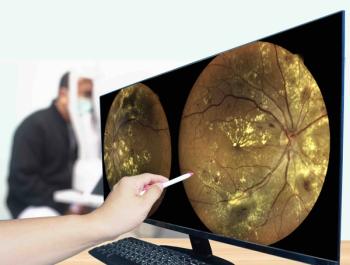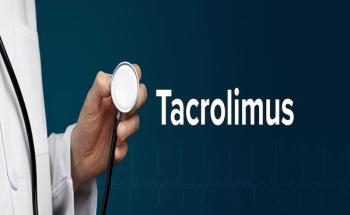
A phase 3 trial highlights betibeglogene autotemcel as a potentially curative gene therapy for severe transfusion-dependent β-thalassemia.
Kimberly Rath, PharmD, is a freelance health writer who previously worked as a clinical pharmacist with Elevance Health for a decade. She has also worked for Amerigroup and Sentara Group.

A phase 3 trial highlights betibeglogene autotemcel as a potentially curative gene therapy for severe transfusion-dependent β-thalassemia.

Researchers study long-term safety of lentiviral gene therapy in primates, finding no evidence of somatic mutations or malignancy.

A national survey of Canadian hematologists reveals gaps and variability in supportive care strategies for older adults with myelodysplastic syndromes (MDS) and acute myeloid leukemia (AML), emphasizing the need for evidence-based guidelines.

Findings from a phase 2 trial show that luspatercept effectively improves anemia in patients with lower-risk myelodysplastic syndromes (MDS), enabling them to delay or prevent transfusion dependence while maintaining a favorable safety profile.

A systematic review of quality-of-life tools available specifically for pulmonary arterial hypertension (PAH) reveals that although several instruments demonstrate strong psychometric properties and reliability, significant gaps remain in these tools' validation and methodological rigor.

Real-world study compares the efficacy and safety of axicabtagene ciloleucel (axi-cel) and tisagenlecleucel (tisa-cel), finding that axi-cel provides superior progression-free survival but with higher toxicity.

Gene therapy partially restores visual processing in the geniculostriate pathway of patients with Leber congenital amaurosis type 2 while maintaining compensatory activity in the retinotectal pathway.

Researchers review the safety, efficacy, and considerations for COVID-19 vaccination in multiple sclerosis patients, especially those on disease-modifying therapies, affirming the vaccine's overall benefit in reducing severe COVID-19 risks without significantly increasing MS relapse rates.

A new study shows that COVID-19 infection significantly increases the risk of exacerbation in patients with myasthenia gravis (MG).

A new study aimed at exploring the relationship between obesity and multiple sclerosis severity using genetic data finds that higher BMI and other obesity measures were associated with increased disability progression in patients with MS.

Long-term survival rates for patients with leukemia after hematopoietic cell transplantation (HCT) are encouraging but personalized transplant strategies remain important to improve outcomes.

Findings of a recent study indicate that NUP98 rearrangements can significantly impact outcomes in patients with acute myeloid leukemia (AML).

A new study finds that eliminating radiation from conditioning regimens in patients with dyskeratosis congenita undergoing allogeneic hematopoietic cell transplantation did not negatively affect survival or increase complications.

Researchers introduce a telemedicine system powered by artificial intelligence (AI) that automatically scores neuromuscular examinations, offering the potential to enhance patient monitoring, reduce variability in clinical trials, and improve access to care for neuromuscular disorders like myasthenia gravis.

Posttransplantation treatment with either tacrolimus or cyclosporine A results in favorable outcomes, but tacrolimus may be better at preventing severe graft-versus-host disease (GVHD), according to new study findings.

This new study investigated the impact of COVID-19 on patients with myasthenia gravis, finding that although most patients did not experience severe COVID-19, a significant portion suffered postinfection exacerbations.

Both music combined with sleep hygiene and sleep hygiene alone significantly improved pregnancy related insomnia, a new study finds.

A new study identifies potential immune profile differences in patients with chronic lymphocytic leukemia (CLL) that may lead to resistance after ibrutinib therapy.

A recent study evaluates the dosing, safety, and efficacy of telaglenastat and azacytidine to treat advanced myelodysplastic syndromes (MDS), with promising results.

A new study reviews how various routes of adeno-associated virus (AAV) gene therapy administration influence local and peripheral immune responses, with a focus on those observed in clinical trials targeting the central nervous system (CNS).

Research further shows a significant association between patients with psoriasis and an increased incidence of obstructive sleep apnea (OSA).

Study results show that a portable breath analysis device designed for early detection of non–small cell lung cancer may distinguish between patients with the disease and healthy individuals.

Researchers identify certain predictive factors that impact the prognosis of patients with myasthenia gravis and COVID-19 infection.

Researchers investigate the expression of PARP1 in leukemias with BCR::ABL1 p190+ translocation, finding differential expression in ALL, AML, and CML but no significant correlation with clinical parameters.

Researchers report on the long-term immune changes in patients with refractory or relapsed chronic lymphocytic leukemia (CLL) treated with venetoclax and rituximab plus bendamustine and rituximab.

New study provides insights into the relationship between TP53, miR-34a, and NOTCH1 in CLL cells.

A new study demonstrates that the combination of lenalidomide (Revlimid) and obinutuzumab (Gazyva) is effective and well-tolerated in treating relapsed indolent non-Hodgkin lymphoma (NHL).

A new study aims to investigate the feasibility and impact of multidisciplinary prehabilitation in adults with acute myeloid leukemia (AML) or myelodysplastic syndrome (MDS) offered an allogenic hematopoietic stem cell transplantation.

Findings of a systematic review highlight the need for standardized assessment tools and targeted treatments for chronic cough in patients with idiopathic pulmonary fibrosis and other interstitial lung diseases.

Undetectable measurable residual disease rates can help predict progression-free survival in patients with chronic lymphocytic leukemia, according to an analysis.

259 Prospect Plains Rd, Bldg H
Cranbury, NJ 08512
© 2025 MJH Life Sciences®
All rights reserved.
